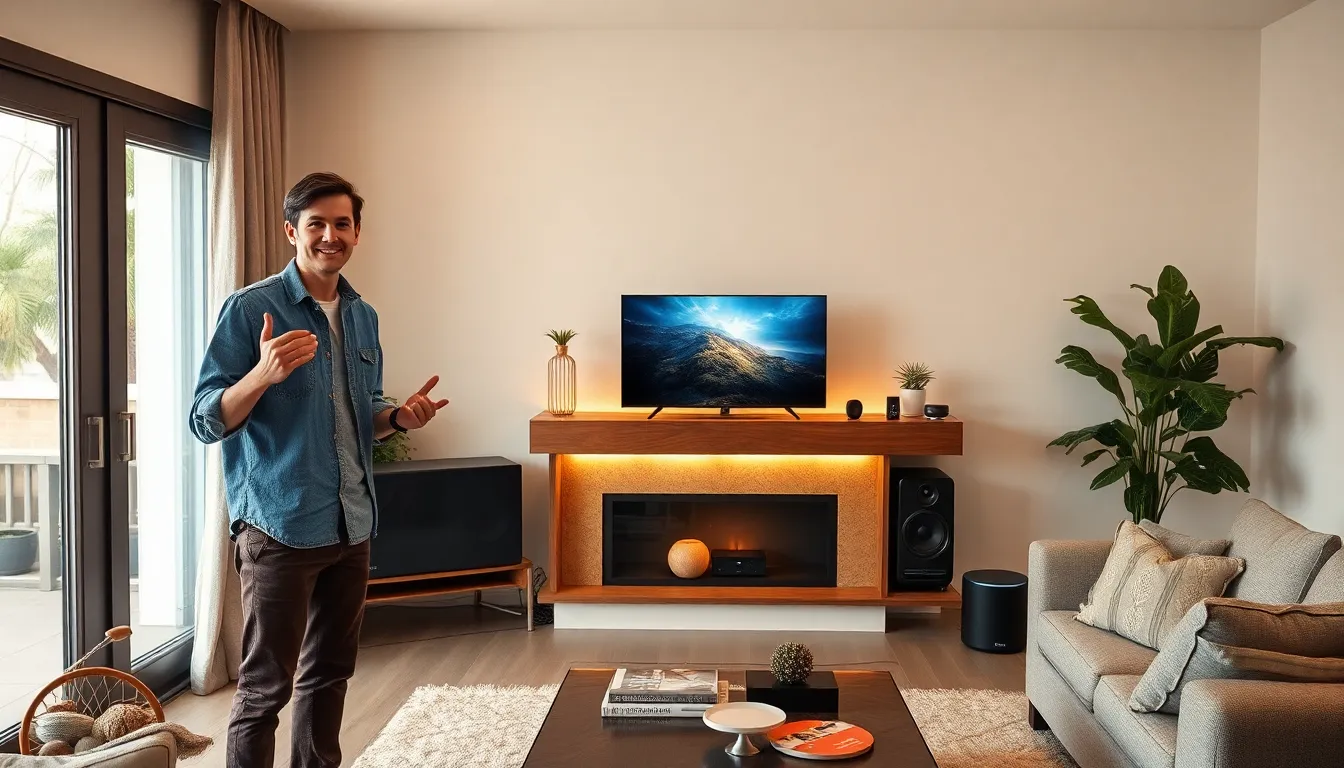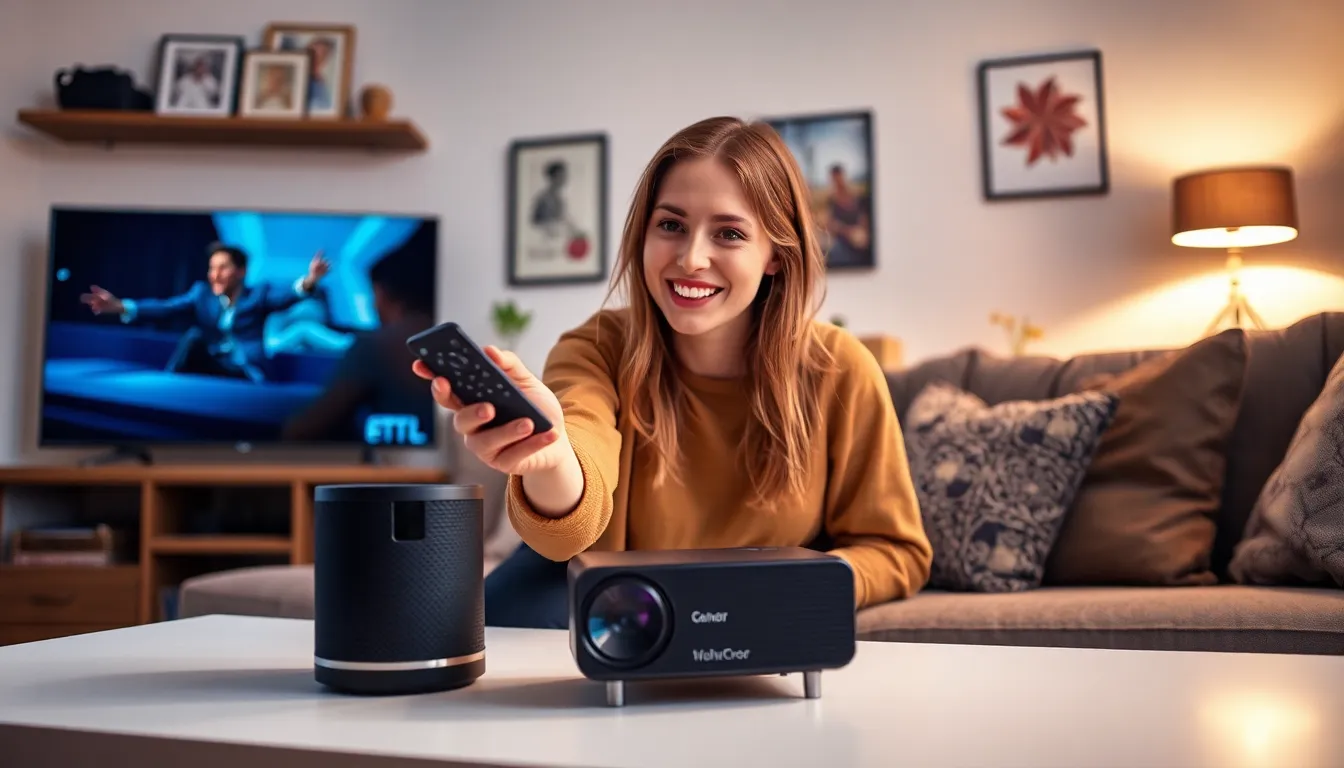In today’s fast-paced world, who has time to sit in a waiting room flipping through outdated magazines? Enter the superhero of modern medicine: mobile apps for healthcare. These nifty little programs are revolutionizing how patients manage their health, making doctor visits feel as easy as ordering a pizza. With just a few taps, users can book appointments, track symptoms, and even consult with doctors—all from the comfort of their couch.
But wait, there’s more! These apps don’t just save time; they also empower users to take charge of their health. Whether it’s reminding someone to take their medication or providing instant access to medical advice, mobile apps are the trusty sidekicks everyone needs. So, let’s dive into the world of healthcare apps and discover how they’re transforming lives one download at a time.
Table of Contents
ToggleOverview Of Mobile Apps For Healthcare
Mobile apps significantly enhance healthcare delivery by improving communication between patients and providers. These applications facilitate appointment scheduling, enabling users to select convenient times and reduce wait times. Users report better management of their health through tools that track symptoms and provide analytical insights.
Healthcare providers utilize apps to streamline clinical workflows. They can access patient information instantly, allowing for quicker decisions and tailored treatment plans. More users now rely on telehealth features, offering real-time consultations from the comfort of their homes.
Medication adherence improves through reminders sent directly to users’ devices. Users benefit from personalized alerts regarding dosages and refills, thereby lowering the risk of missed medications. Access to medical advice fosters a proactive approach to health, empowering users to seek care without unnecessary delays.
Data security serves as a critical consideration in app development. Developers prioritize user privacy, implementing strict protocols to safeguard sensitive information. Regulatory compliance, such as the Health Insurance Portability and Accountability Act (HIPAA), governs how personal health information is managed.
The rise of wearable technology integrates seamlessly with mobile apps. Devices like fitness trackers and smartwatches correlate data, allowing users to monitor vital signs continuously. Integration fosters a holistic view of health, encouraging users to adopt healthier lifestyles based on comprehensive feedback.
Mobile apps for healthcare continue to evolve, adapting to emerging technologies and user needs. These advancements contribute to an improved patient experience, making healthcare more accessible and engaging. As the landscape progresses, applications are positioned to play a pivotal role in transforming the way individuals interact with their health and wellness.
Types Of Mobile Apps For Healthcare

Mobile apps in healthcare encompass various types, each designed to serve specific needs and improve patient experiences. They play crucial roles in telehealth, medication management, and fitness tracking.
Telehealth Apps
Telehealth apps facilitate remote consultations between patients and healthcare providers. They enable users to connect with doctors through video calls or messaging. These apps often include features for secure messaging and appointment scheduling. Patients benefit from immediate access to medical advice without traveling. Studies show that telehealth can reduce healthcare costs by decreasing unnecessary visits to facilities. Accessibility improves, especially for individuals in rural areas or those with mobility issues.
Medication Management Apps
Medication management apps assist users in tracking their prescriptions and dosages. Reminders prompt patients to take medications on time, enhancing adherence. Some apps allow users to set refill notifications to avoid shortages. Users also can log side effects and share this information with doctors during visits. Reports indicate that proper medication adherence significantly decreases hospital readmissions. Safety improves as users can access drug interactions and dosage information instantly.
Fitness Tracking Apps
Fitness tracking apps encourage users to maintain active lifestyles through activity monitoring. These applications track metrics such as steps taken, calories burned, and heart rate. Many integrate with wearable devices for real-time data collection. Users can set fitness goals and receive tailored workout plans based on their progress. Research indicates that consistent use of fitness tracking apps leads to healthier habits. Engagement with health data motivates individuals to make informed lifestyle choices.
Benefits Of Using Mobile Apps For Healthcare
Mobile apps significantly contribute to healthcare improvements through various benefits. These enhancements streamline processes for both patients and providers.
Improved Patient Engagement
Mobile apps boost patient engagement by placing healthcare resources directly in users’ hands. Users track symptoms, access personalized health information, and receive wellness tips. Engaging features like gamification encourage individuals to take an active role in their health management. Current data indicates that increased engagement leads to better health outcomes and higher satisfaction rates. Patients can now manage their appointments, monitor medication schedules, and connect with support communities effortlessly.
Enhanced Communication
Mobile apps foster enhanced communication between patients and healthcare providers. These platforms allow real-time messaging and instant access to medical advice. Providers benefit from increased clarity in understanding patient concerns. Many apps facilitate secure file sharing and video consultations that break down barriers to care. Patients experience quicker responses and more personalized interactions, directly impacting treatment efficiency. Increased communication ultimately leads to higher levels of trust and transparency in the healthcare relationship.
Challenges And Limitations
Several challenges and limitations affect the effectiveness of mobile apps in healthcare. These issues can impact user experience and hinder the potential benefits mobile applications offer.
Data Privacy Concerns
Data privacy remains a critical issue as mobile apps handle sensitive health information. Companies must implement strong security measures to protect user data from breaches. Compliance with regulations such as HIPAA is essential for gaining patient trust. Users often feel apprehensive about sharing personal information due to fears of data misuse. Ensuring robust encryption protocols and transparent data policies can help mitigate these concerns. Developers must prioritize user privacy throughout the app lifecycle, fostering confidence and encouraging more widespread app usage.
User Accessibility Issues
Accessibility poses significant challenges in mobile app usage for healthcare. Users with different abilities may struggle to navigate apps poorly designed for inclusivity. Features such as voice commands and larger text options can enhance accessibility for those with visual impairments. Digital literacy varies among users, leading to difficulties in understanding app functionalities. This discrepancy can create barriers to engagement with health management tools. Striving for user-friendly interfaces and comprehensive support can foster a more inclusive healthcare app environment, ensuring all individuals can access vital resources effectively.
Mobile apps are revolutionizing the healthcare landscape by fostering greater patient engagement and improving access to essential resources. Their ability to streamline communication between patients and providers enhances the overall healthcare experience. With features like telehealth consultations and medication reminders, these apps empower users to take charge of their health journey.
As the technology continues to advance, addressing data privacy and accessibility will be crucial. A focus on user-friendly design and robust security measures can help build trust and ensure that everyone can benefit from these innovative tools. The future of healthcare is undoubtedly intertwined with mobile technology, paving the way for a more connected and informed patient population.




